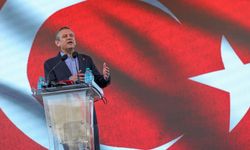How Has the Turkish Loan Market Been Locked?
Politikyol
In the early 2010s, a thesis was put forward in Turkey according to which the interest was the cause of inflation. The Central Bank of the Republic of Turkey (CBRT) was put under political pressure in order to turn that thesis into practice. As a result of political pressure, the CBRT started to make timing errors in monetary policy decisions. Using monetary policy tools in the right amount at the right time increases policy effectiveness. Political pressure reduced the effectiveness of the CBRT's monetary policy.
In order to escape political pressure, the CBRT made the design of its monetary policy tools quite complicated. It was impossible for the market to understand the changed monetary policy structure. The cost of funds used to be increased when necessary, albeit with delays due to political pressure, without any increase in the policy rate. The market was calling what the CBRT was doing "disguised interest rate increases." The interest was increasing in very complex ways.
In the early 2010s, the independence of the central bank was nevertheless emphasized by the members of the ruling party even though political pressure was intensifying. In 2019, a period of successive dismissals of central bank governors began. The CBRT no longer had any authority to use monetary policy tools freely.
The process in which the CBRT lost its independence went along with the process in which the judiciary also lost its independence and one of the most important concepts of democracy, such as the separation of powers, was destroyed. Turkey faced a process that could not even be considered in democratic countries and led the country to a "governance crisis". What was happening in the economy was a reflection and an integral part of the political understanding.
With the CBRT starting to function like a ministry of the government, decisions on interest began to be taken directly by the president. As a matter of fact, there are statements these days that the interest rate will decrease to single digits by the end of 2022 and there are forecasts based on these statements.
A thesis that has no place in economic theory has moved Turkey away from free market principles. New rules introduced to protect Turkey’s economic balances which were disturbed by interest rate cuts caused imbalances instead. Required reserves applied for deposits began to be applied to loans as well.
Required reserves which were first 10% and then 20% were reset in the past weeks. Instead, banks are now obliged to purchase securities in return for the loans they grant. The aim is to reduce the cost of public finance while reducing the policy rate. However, the government also has foreign currency debt and the cost of this debt remains at extraordinary levels due to increased risks. The cost of debt is roughly in the range of 9-11% in US dollars at various maturities.
The share of Turkey's interest expenditures in the budget has been increasing since 2017. Trying to keep the interest under pressure, the government increases the interest expenses of the state.
The market has its own logic and rules. As it was seen that the targets planned to be achieved within 6 months with constantly announced new regulations were not realized, the solution was to further disrupt the functioning of the market with new regulations. The introduction of new rules that are not compatible with the functioning of the market has reached the point of "not operating in natural balances."
With the new rules, a price ceiling was brought to loans. In other words, "risk pricing" which is the most natural right of any bank has reached the point at which it can no longer be practiced. Thereupon, banks started to price their loans by using commission rates on top of the interest rate in order to achieve the targeted return of a loan in a certain term. The price quotations for loans have been in the range of 25-30% under the conditions of 83.45% inflation recently announced by the Turkish Statistical Institute (TUIK). This rate does not eliminate the attractiveness of utilizing loans for the borrower. Additionally, it is obviously not high enough to reduce the rate of inflation.
With the new rules, it was not possible to stop the expansion of Turkish lira-denominated loans which reached TL4.3 trillion on 23 September 2022 which was TL2.8 trillion on 31 December 2021. Under these conditions, inflation has not fall naturally. The dollarization problem could not be solved with the foreign exchange-protected deposit which was developed to eliminate the inflationary effects of the rise in the exchange rate. Pressure was exerted by ignoring the saver's natural preferences under market conditions. Banks have been facing penalties if they fail to discourage firms and individuals from saving in foreign currencies.
The summary of what has been done in Turkey as far as economic policies are concerned is as follows: while the interest affects the money supply in the market in an expansionary way within the framework of the market logic, the money supply is tried to be narrowed by eliminating the market functioning with pressure methods. There is a contradiction and a governance crisis.
The CBRT also intervened in alternative methods that banks found to use their pricing capabilities within the framework of risk management principles. A regulation with regard to commission rates was put into effect. In other words, it has become even more difficult for banks to perform their pricing practices. Every commission that banks collect has a certain definition. Some of these commissions can only be taken once a year as per the rules. Collection of other types of commissions is possible only within certain technical limits. When these technical limits are challenged, which new methods will banks be able to perform for collection? How can banks maintain their risk-profit balance within the framework of their own balance sheet management principles? They have to buy government bonds to make loans. Can it be expected from banks to buy government bonds the interest rates of which vary roughly between 10.50% and 14.50% when the rate of inflation is 83.45%? Since they will not want to buy these bonds, they will not grant loans. As a matter of fact, this was the result that emerged especially in the past 1 month.
In order to reduce inflation, it is necessary to slow down the expansion of credit supply or stop it in accordance with the level of the rate of inflation. However, if this is done outside the free market conditions, a "non-working market" will be the expected result.
It has become extremely difficult for banks to calculate their costs. The difficulties of calculating costs and the measures they took to avoid penalties have brought the loan market to a standstill from time to time in recent months. There have been days and sometimes weeks in which loan pricing by banks has been just impossible.
There is an important distinction in the regulations of recent periods. There are loan types that are covered and not covered by all regulations. The following types of loans are outside the scope of the regulations: loans for small and medium enterprises, tradesmen loans, export loans, investment loans, agricultural loans, corporate credit cards, loans to financial institutions, consumer loans, loans to public institutions. The obligation to hold securities for loans other than these types of loans is not attractive to banks. Among these types of loans, the loans that are still considered “optimal” are the ones to exporters and financial institutions.
On September 28, 2022, an amendment came into existence. In the regulation, the definitions of the "exporter" and the "export credit" were changed. Accordingly, the following wording was incorporated into the regulation: in the last 3 fiscal years or in the last fiscal year, loans extended for a maximum of two years to companies with a ratio of at least 110% of total exports to total imports. This means that the credit resource is cut off to companies whose foreign trade volume is predominantly made up of imports.
According to August 2022 data, Turkey's foreign trade deficit for the January-August 2022 period increased by 146.3% compared to the same period of the previous year and reached $73.4 billion. This deficit corresponds to a period of annual growth of 7.5% in the first quarter and 7.6% in the second quarter of 2022. In other words, Turkey cannot grow without importing. According to TUIK data, 81.6% of imports in the January-August 2022 period consist of imports of intermediate goods. 10.6% is made up of capital goods imports. The sum of both categories is 92.2%. In other words, 92.2% of the total $239 billion imports of the January-August 2022 period is for manufacturing purposes. With the regulation on September 28, 2022, the credit resource for $239 billion of foreign trade was cut.
As a result, pricing in the loan market has no more logic within the framework of market functioning. It became impossible to base pricing on the analysis of risk and profitability balances and to set commercial targets accordingly. There has been no market mathematics for a long time to encourage the saver to save in Turkish Lira instead of trustworthy foreign currencies. There is no strategy that can prevent the exchange rate attacks that occur from time to time, a fact which is one of the main causes of inflation. It can be taken into consideration that one of the factors that restrained the foreign exchange rates was the $24.3-billion “net errors and omissions” item on the balance of payments which enabled the financing of the current account deficit of the last 12 months which reached $36.6 billion in July 2022. A country's economic strategies cannot be determined with an inflow of funds from unknown sources. That resembles the days when the CBRT tried to manage monetary policy through the late liquidity window.
With a very important regulation, loans will increasingly be made available "against invoices". There should be no objections to this practice within the framework of "financial discipline" and "risk management" principles. However, this step is introduced by a government the aim of which is to base the political system on religion. This should be interpreted as part of a regime change. The financial market being reverted to an Islamic model is the economic step of a big change in the big picture.
Yorumlar
Popüler Haberler

YÖK'ten üniversitelere yazı: "Boykot çağrısı yapanlara idari ve adli işlemleri yapın"

RTÜK Başkanı Şahin, 10 gün 'ekran karartma' cezası verdiği Sözcü TV'den İpek Özbey'le bir araya geldi

Şehitkamil Belediye Başkanı Umut Yılmaz, CHP'den istifa etti

Şehitkamil Belediye Başkanı Umut Yılmaz, CHP'den neden istifa ettiğini açıkladı

CHP'nin olağanüstü kurultayında Özgür Özel'e rakip: Adaylığını resmen duyurdu

CHP’nin olağanüstü kurultayı: Divan Başkanlığına önerilecek isim belli oldu

